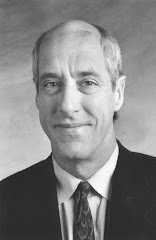A recent poll among Republicans shows Gov. Bobby Jindal has slipped from even the second tier of GOP presidential prospects. Yet he still has no trouble raising money out-of-state or making headlines on the national stage, though perhaps not the kind he had in mind.
During his fundraising trip to Washington last week, the governor gave an interview to Politico, an on-line magazine read closely in the capital, that briefly thrust him into the middle of the healthcare debate--uncomfortably, that is, between the Obama White House and Republican leaders in Congress.
With the Senate Finance Committee preparing to vote on a bill opposed by nearly all Republicans, Jindal told Politico, "I think now is the perfect time to pivot and to say, not only here's what we're against . . but here's what we're for."
The headline read, Jindal to GOP: Work with Obama.
Jindal's remarks were not much different from what he's said all along about healthcare, but his timing and calling for Republicans to "pivot" was seized upon by White House press secretary Robert Gibbs, who in that day's press briefing said, "I think I saw one of the more popular Republican governors, Bobby Jindal, say today that it was time for Republicans to offer what they're for, not just talk about what they're against." And he urged the GOP leadership to listen to the young governor's call for cooperation.
They heard him, all right, none too happily. Jindal's remarks were likely galling to many Republicans, including the one who succeeded him, Rep. Steve Scalise of Metairie, who has written the president asking for a meeting to discuss areas of agreement and to offer alternatives.
If Obama and Jindal were to kick back over a beer, they would agree on insurance portability and coverage for pre-existing conditions, as the Republicans have. But they would disagree over the Medicaid expansion and penalties on employers who don't offer coverage, as the Republicans have.
So, besides his choice of softer words, Jindal's position on healthcare is the same as the Republican leadership's and just as irreconcilable with the president's. Yet the White House cast Jindal as Mr. Reasonable, whose example the GOP hacks should follow.
By then, the governor may have noticed he was being used. He sought to create some distance from his new admirers in the White House by responding in a statement, "The American people do not want to raise taxes, increase government spending or give government more control of our healthcare system."
But the story had moved on and congressional Republicans were no doubt pleased to see Jindal return home to resume his schedule of ribbon-cutting and medal-pinning ceremonies.
Besides image, however, there is another big difference between Jindal and congressional Republicans, that could explain his conciliatory tone. GOP congressmen can speak against, vote against and run against whatever healthcare bill the Democrats manage to pass. But Jindal, like other Republican governors, will have to take it and make it work within the budgets and frameworks of state government.
Provisions of bills being debated, if they become law, would fundamentally change public healthcare in Louisiana, spelling the end of the charity hospital system as we know it. Jindal's plans for overhauling the state's Medicaid program would have to conform to new federal rules.
Beyond that, Louisiana seeks special treatment from the feds on pressing healthcare issues. It desperately needs a $1 billion fix on its Medicaid match rate, caused by an artificial spike in personal incomes in the post-hurricane economy.
Also, if the state doesn't get all it seeks in arbitration with the Federal Emergency Management Agency to replace Charity Hospital in New Orleans, the president has said he would consider providing additional funding.
How those crucial matters are resolved could largely define Jindal's first term and shape his reputation as a problem-solving, can-do governor. Success greatly depends on cooperation from the Obama administration and, whether conservative voters like it or not, a good working relationship between the governor and the president.
So if Jindal's comments proved useful to the White House, it is hardly a bad thing for him or Louisiana. With so much on the line, I'd kiss up too.
Tuesday, October 13, 2009
White House Embraces Jindal's Message
Subscribe to:
Post Comments (Atom)

No comments:
Post a Comment